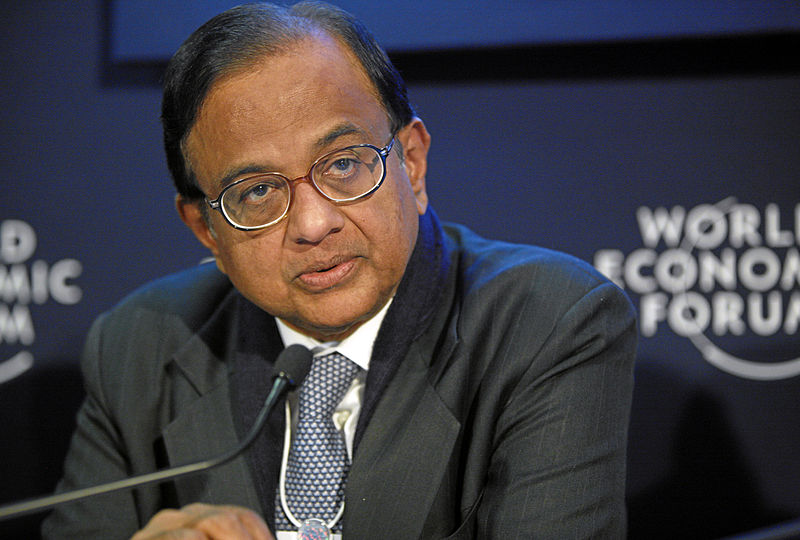Overview of Union Budget 2013
[caption id="attachment_627" align="aligncenter" width="480"] Finance Minister P.Chidambaram presented the 2013 Union Budget[/caption]
Finance Minister P.Chidambaram presented the 2013 Union Budget[/caption]
 Finance Minister P.Chidambaram presented the 2013 Union Budget[/caption]
Finance Minister P.Chidambaram presented the 2013 Union Budget[/caption]Budget 2013
- Overview
The day of the budget is always tense and this time, with the Union Budget 2013, it was no different. The markets plunged to the day's low with BSE dropping 190 points to 18961, while Nifty declined 65 points to 5732. Rupee also slipped to 54.18 to the dollar.
Union Budget 2013 (FI 2013-2014) was presented by Finance Minister P. Chidambaram with the aim at achieving high economic growth despite the global slowdown prevailing in the global market. As said by the FM himself he aims at "higher growth leading to inclusive and sustainable development." He wants to ensure that the fiscal deficit is contained to 4.8% of the GDP.
Just to ensure that proper check is maintained on the Current Account Deficit (CAD), the minister proposes to encourage foreign investment that is consistent with India's economic objectives.
The Finance Minister said that the other areas of concern addressed by his Government are inflation and government expenditure. “Our efforts in the past few months have brought down Wholesale Price Index (WPI) inflation to about 7.0% and core inflation to about 4.2%. It is food inflation that is worrying, and we shall take all possible steps to augment the supply side to meet the growing demand for food items,” he said. $75 billion is needed to finance the current account gap over the next two years.
"The Indian economy has slowed down, and growth is expected to drop to 8% as the nation is still feeling the effects of the global economic downturn. Only China and Indonesia are growing faster than India, but next year, India will overtake Indonesia", Chidambaram said.
Tax revenues in the current year grew at 16.7% as compared to the economy which is growing at a five% rate. So, if the economy grows at 6.1-6.7% next year, tax revenues could be assumptive to grow at 18%.
Some of the key points highlighted by the minister in the Union Budget 2013 towards taxation are as follows:
Key Points of Union Budget 2013
Personal Tax
-
No revision of personal income tax slabs; relief in the first bracket through a tax credit of Rs.2,000 for earnings up to Rs. 5 lakh
-
10% surcharge for income exceeding Rs.1 crore a year for individual and firm.
-
No change in the rate of Secondary and Higher Education Cess of 2% and 1% respectively.
-
Additional deduction of Rs.1 lakh is allowed in case of acquisition of first house property whose value is less than Rs.40 lakhs and the loan amount is less than Rs.25 Lakhs. Further, the unabsorbed deduction can be carried forward to next year.
-
National Children Fund included in 100% exemption of 80G.
-
TDS @ 1% on purchase of property of more than Rs.50 Lakhs except for agricultural land.
-
TDS @ 20% in case of buyback of unlisted share.
-
The Rajiv Gandhi Equity Scheme will be liberalized to allow first-time investors to invest in mutual funds and other forms of equity.
Corporate Tax
-
No change in the Corporate Income Tax rate of 30%
-
No change in the rate of Surcharge of 5% (for income exceeding Rs. 1 crore) but Surcharge will be 10% in case income exceeds Rs.10 crore.
-
No change in the rate of Secondary and Higher Education Cess of 2% and 1% respectively.
-
No change in the rate of Dividend Distribution Tax (DDT) however, since surcharge is increased to 10%, therefore effective rate of DDT is now 16.995%.
-
No change in the rate of Short-Term Capital Gains on listed securities subject to Securities Transaction Tax of 15%.
-
The lower rate of tax @ 15% on dividend received from foreign companies still to continue.
Others (Stock Trading)
-
Tax on mutual fund redemptions reduced from .25% to .001%
-
In the equities future segment, STT would be brought down to 0.01% from 0.017%.
-
For mutual fund / exchange traded fund redemptions, the levy would cut to 0.001% from 0.25%.
-
In the case of MF/ETF purchase or sale on exchanges, the same would be reduced to 0.001% from 0.1%, only on the seller.
-
Introduction of Commodities transaction tax of 0.01% on non-agri futures traded on commodity exchanges (Due to this MCX shares tumbled nearly 5% on the Union Budget 2013 day).